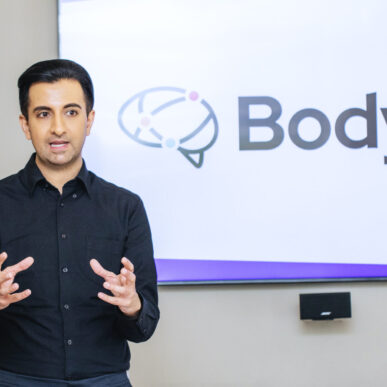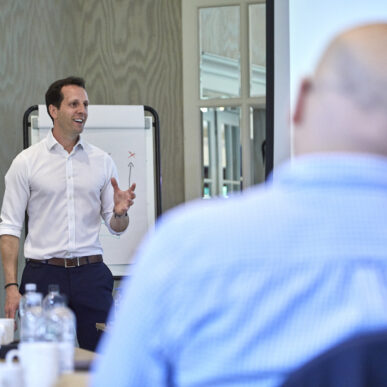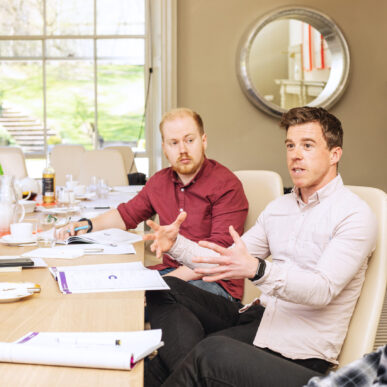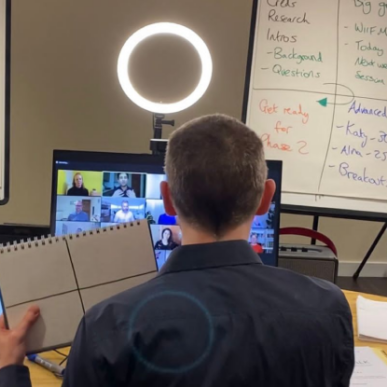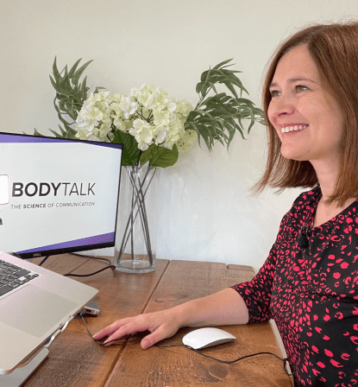“We have an average of 6,200 thoughts flying through our brains every day and around 80% are negative“
Peak Performance Mindset – What You Need To Perform At Your Best
We have an average of 6,200 thoughts flying through our brains every day and according to the National Science Foundation around 80% are negative. A quick maths check shows that’s just shy of 5000 negative thoughts or beliefs every day.
You’ve possibly already had some of these thoughts already today and the trouble is they are insidious. They stealthily creep into our heads and manifest in a variety of ways such as self-defeating statements, perfectionism, feelings of insecurity, worthlessness, and poor self-image.
Over time, these negative thought patterns can be damaging to your well-being as they have the power to shape how you view yourself and the world around you. They can also lead to a variety of unwanted emotions such as sadness, anger, fear, and hopelessness.
But by learning how to identify negative thoughts and challenging them with positive reinforcements it’s possible to reshape our thinking into more constructive habits. This in turn helps us to build resilience and become more accepting of ourselves and others. When we start being aware of our patterns of thinking we can start to confront negative thoughts before they take hold, challenge them with facts and evidence, and ultimately transform them into positive beliefs.
What’s Happening In Our Brains?
This is exactly how the amygdala, the area of the brain responsible for emotional responses, can reinforce negative beliefs. It takes previous experiences or traumas and stores them as memories to protect us from harm in future situations. The problem is that these memories don’t necessarily go away when we are no longer in danger – instead they remain active in our subconscious and can sabotage us without warning. By learning to recognise triggers, emotions, and behaviours associated with negative thought patterns it’s possible to take control of them by challenging them with more rational reasoning. This process helps retrain our amygdala so that we can start building up a library of positive beliefs rather than being bogged down by negativity all the time.
So how can we retrain our brains? From challenging your thoughts to visualisation there are a number of strategies to help rewire our brains for positivity. Below are five ways you can try to help reshape your thinking and start building a more positive outlook.
Identify Negative Thoughts
The first step to a peak performance mindset is to identify the negative thoughts that are holding you back. Negative thoughts and self-defeating narratives can have a huge impact on our ability to achieve our goals and lead fulfilling lives. A good starting point is to identify the patterns of thinking that hold us back, such as feeling unworthy or doubting our own abilities. Often referred to as “imposter syndrome”, these limiting beliefs can have us feeling like we don’t belong or that we are inadequate.
Challenge Your Thoughts
Once those negative thoughts have been identified, challenge them with positive reinforcements. This can be difficult as they are often deeply ingrained. One way to challenge is to ask yourself if there is evidence that supports the negative thought or if this is just a limiting belief? If it’s the latter, try replacing the negative thought with affirmations such as ‘I am capable of achieving my goals’ or ‘I am strong enough to handle this situation’. Affirmations should be in the present tense and framed positively; for example, instead of saying “I will no longer procrastinate” you could say “I am taking action on my goals every day”. Try writing down your affirmations and repeating them daily – even if you don’t initially believe them, over time you may find it easier to challenge those negative thoughts when they arise.
Visualise Your Goals
Visualisation is a powerful tool that can help you stay focused on what’s important and keep striving towards it. Some of the world’s top athletes and sports personalities attribute their success to visualisation. Jessica Ennis-Hill and Chris Hoy have both spoken about how they would visualise every moment of their races thousands of times in advance so by the time the race was about to start they felt they had already achieved their goals. Mohammed Ali got so good at visualising the exact round and punch he would win the match that bookmakers asked him to stop sharing the details before the match as fans were betting on the outcome he described… and winning! But visualisation can be used for much more than just sport. It’s a great way to achieve mindset shifts and overcome imposter syndrome. By picturing yourself in the mindset of your desired outcome, you can actually start to internalise it and get closer to achieving it. When visualising, use a combination of positive affirmations and mental images. Think about the mindset you want to adopt and picture yourself in this mindset with confidence and determination – then repeat these affirmations out loud or in your head as often as possible until they become second nature.
Stay Focused On The Present Moment
Try not to dwell too much on past failures or worry about future outcomes – focus instead on the present moment and what needs doing now in order to maximise your chances of success later on down the line. You can remind yourself that the only thing you have any control over is what’s happening right now, and that’s where your energy and focus is best spent.
Stop Comparing Yourself To Others
‘Comparison is the thief of joy’ Comparison is often cited as one of the main causes of unhappiness – don’t let it be yours too. Try not to look at other people’s achievements as something better than yours but rather as something inspiring – use their stories as motivation for setting new goals or pushing through difficult times.
Finally, practice self-compassion. It’s important that you don’t become overly critical or judgmental of yourself when things don’t go as planned. Acknowledge your experience and use it as an opportunity to learn and grow instead of beating yourself up over it. Give yourself permission to make mistakes without fear of failure so that you can continue striving toward success.
Can We Help You?
Still need some help? We offer a number options to help you or your team banish their limiting beliefs and improve their mindset. From our Peak Performance Masterclass or 121 coaching, we have something to fit all time frames and budgets. Get in touch today to discuss how we can help you achieve your communication goals.
You can also watch or listen to our podcast below, where Richard talks about how his mindset helped him through challenging times.
Staying Resilient In Difficult Times from Body Talk on Vimeo.







